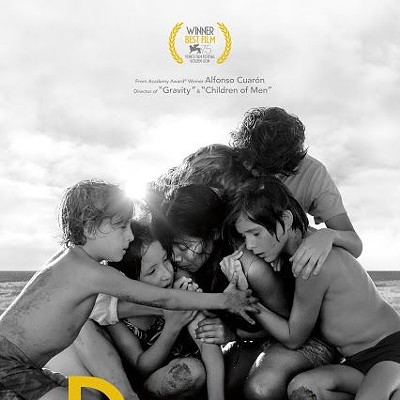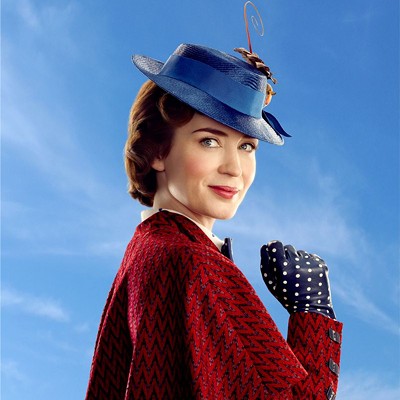Now Showing
[
{
"name": "Air - MedRect Combo - Inline Content 1",
"component": "14680855",
"insertPoint": "7",
"requiredCountToDisplay": "5",
"parentWrapperClass": "fdn-ads-inline-content-block"
},{
"name": "Air - MedRect Combo - Inline Content 2",
"component": "14680856",
"insertPoint": "15",
"requiredCountToDisplay": "9",
"parentWrapperClass": "fdn-ads-inline-content-block"
},{
"name": "Air - SVP - Leaderboard - Inline Content - 2",
"component": "16852291",
"insertPoint": "10",
"requiredCountToDisplay": "10",
"parentWrapperClass": "fdn-ads-inline-content-block"
},{
"name": "Air - SVP - Leaderboard - Inline Content - 3",
"component": "16852292",
"insertPoint": "20",
"requiredCountToDisplay": "18",
"parentWrapperClass": "fdn-ads-inline-content-block"
},{
"name": "Air - SVP - Leaderboard - Inline Content - 1",
"component": "16852290",
"insertPoint": "25",
"requiredCountToDisplay": "22",
"parentWrapperClass": "fdn-ads-inline-content-block"
}
]
LAST HOLIDAY PP1/2
A remake of a 1950 British comedy starring Alec Guinness, Last Holiday is better than expected thanks to its retooling as a vehicle for Queen Latifah. Director Wayne Wang, who probably eyes the career of Ang Lee and wonders where he went wrong, has long been demoted from indie darling (Smoke) to studio hack (Maid In Manhattan), and his desire to appease the studio gods means that theres very little innovation on view in this predictable picture. But Queen Latifah and her supporting cast -- to say nothing of the gorgeous location shooting and eye-popping shots of delectable food dishes -- go a long way toward making this digestible. Latifah stars as Georgia Byrd, a working class woman who, upon learning that shell die in three weeks, cashes in all her assets and heads off to the Grandhotel Pupp (located in the Czech Republic) with the intent of winding down her life in luxury. While at the hotel, she befriends the cook (Gerard Depardieu -- how Ive missed him!), offers sage advice to assorted individuals (among them Giancarlo Espositos silky Senator and Alicia Witts kept woman), and butts heads with her former boss, the hardhearted CEO of a national retail chain (Timothy Hutton). Meanwhile, her love interest (LL Cool J) back home discovers her dark secret and hightails it to be by her side. The message of the film is that everyone -- no matter their lot in life -- should be treated with dignity and respect, but after watching Latifah receive endless massages, hit the snowy slopes and chow down on lobster and lamb, most moviegoers will be forgiven for believing that the true message of the picture is that (duh) its better to be rich than poor.
BROKEBACK MOUNTAIN PPP1/2
Has there ever existed a movie genre simultaneously as macho and as rife with homoerotic undertones as the Western? With the exception of the war flick, no other classification has found as little use for women as this one. So in hindsight, it seems like a no-brainer that Annie Proulxs short story Brokeback Mountain should have been brought to the big screen. Ultimately, it doesnt matter what the nations in-bred yahoos and right-wing commentators think about the film: Most likely, they wont turn out for it any more than they did for, say, Lost In Translation, Eternal Sunshine of the Spotless Mind or any other challenging movie that had nothing to do with homosexuality but plenty to do with breaking away from the conventional pack. But the secret behind Brokeback Mountain is that, behind its convenient (and infuriating) designation as the gay cowboy movie, this is as universal as any love story Hollywood has produced in recent times. The story begins in 1963 Wyoming, when two young cowboys -- reserved Ennis Del Mar (Heath Ledger) and the more outgoing Jack Twist (Jake Gyllenhaal) -- are hired by a gruff rancher (Randy Quaid) to tend to a flock of sheep up on Brokeback Mountain. One night, when its too cold to sleep alone, the pair huddle up together inside their small tent; before long, Jack is forcefully kissing Ennis and, to his own surprise, Ennis responds in an equally aggressive manner. The men separate, each going on to pursue a more traditional lifestyle. For Ennis, that means marrying his longtime sweetheart, Alma (Michelle Williams), and producing some kids. For Jack, that means trying his hand once again on the rodeo circuit, where he eventually meets his future wife, Lureen (Anne Hathaway). It isnt until some time later that the men see each other again, and upon their first embrace its clear that theyve been bottling up a significant part of their lives. As Jack, Gyllenhaal delivers a nicely modulated performance thats by turns silly and sullen. The weakness in his work -- that he doesnt completely disappear into his character -- is only noticeable because his co-star is operating at such a stratospheric level. Ledger, in short, is phenomenal as Ennis, the sort of pensive individual whos so reluctant to speak that it appears as if uttering a syllable is as strenuous for him as lifting a refrigerator is to the rest of us.
HOODWINKED P1/2
These days, it seems that everyone this side of Mike Leigh has climbed aboard the animation bandwagon. So its really no surprise that Harvey and Bob Weinstein, the former Miramax heads responsible for such adult features as The Piano and The English Patient, have acquired (for their new outfit The Weinstein Company) the distribution rights for this independently produced toon flick. Given the quality, however, the Weinstein siblings would have been well-advised to use the funds as a down payment on another Jane Campion or Anthony Minghella project instead. Hoodwinked isnt exactly awful, but with its crude animation, lumbering storyline and forgettable songs, its hard to envision any demand for its mere existence. Clearly aping the Shrek films, this attempts to put a spin on the classic childrens fairy tales by adding all manner of so-called hip references and grownup-geared plot maneuverings, approaches that grow more stale with each passing year. Hoodwinked is basically Little Red Riding Hood by way of Rashomon, as amphibious Detective Nicky Flippers (voiced by David Ogden Stiers) hears variations on the saga from four different participants: Red (Anne Hathaway), Granny (Glenn Close), the Wolf (Patrick Warburton) and the Woodsman (Jim Belushi). Viewers who havent completely Zenned out during the showing will easily guess the identity of the true culprit, though theyll doubtless have more fun mentally tracking the Six Degrees of Separation between Mike Leigh and Jim Belushi.
MUNICH PPP
Munich is a strong film, an important work, and already a lightning rod for controversy and (one hopes) healthy debate. But another instant Spielberg classic? Not quite. With a script drafted by heavy-hitters Tony Kushner (Angels In America) and Eric Roth (Forrest Gump), Munich is largely a fictionalization of the events that transpired after that tragic day at the 1972 Olympics in Germany, when a group of Palestinian terrorists known as Black September slaughtered the Israeli athletes they were holding as hostages. The movie reveals that, in an effort to exhibit their toughness to the world, the Israeli government sent a select band of assassins to eliminate everyone who was responsible for the Munich massacre. Spielberg and his writers bring to vivid life this motley crew of enforcers: Avner (Eric Bana), the sensitive leader of the group; the fiery getaway driver Steve (Daniel Craig, aka the new James Bond); the meticulous "clean up" man Carl (Ciaran Hinds); the jittery bomb maker Robert (Mathieu Kassovitz); and the pensive forger Hans (Hanns Zischler). But these characters aren't positioned as Israel's version of The Untouchables, with clear-cut visions of right and wrong. Instead, as they carry out each hit on their eye-for-an-eye agenda, each man reacts differently to the consequences of their actions. Is this brand of retribution just? Or are they in effect embracing the same ideology that drives the terrorists? Spielberg's muddying of the moral waters is already drawing heat (primarily from Jewish leaders), but it's to his credit as a filmmaker of consequence that he asks the hard questions and doesn't flinch from any unsettling truths that might emerge. This is perhaps the least sentimental of any motion picture in the director's strong filmography, with a couple of scenes that stand among the most memorable he's created in recent times.
THE RINGER P 1/2
In need of quick cash, a struggling office worker named Steve (Johnny Knoxville) is persuaded by his sleazy uncle (Brian Cox) to pretend to be a mentally challenged athlete named Jeffy so he can enter the Special Olympics and come away the big winner. The movie may sound outrageous and offensive, but truthfully, navel-scratching slobs won't enjoy this any more than navel-gazing snobs once they catch a whiff of its overwhelming timidity. Because the filmmakers respect the plight of the mentally handicapped (indeed, the movie's executive producer is Tim Shriver, Chairman of the Special Olympics), they go out of their way to avoid anything that might be construed as demeaning. This in turn means that, except for a smattering of scenes with Cox's character (who openly calls the athletes "'tards"), the film's only outlet for any risky business is Knoxville, and he falls in line by offering up a performance-within-a-performance (i.e. a regular guy pretending to be handicapped) that's so meek, it's often hard to differentiate between when he's playing Steve and when he's playing Jeffy.
MEMOIRS OF A GEISHA PP1/2
Director Rob Marshalls adaptation of the Arthur Golden novel plays like a Disney version of a Zhang Yimou movie, though the end result isnt as dreadful as that designation might suggest. As movie artifice, its above average, but it goes no deeper than that. Two Crouching Tiger, Hidden Dragon alumni handle the key roles: Ziyi Zhang plays Chiyo, the penniless foster child who grows up to become the legendary geisha known as Sayuri, while Michelle Yeoh essays the role of her mentor, Mameha. The Last Samurais Oscar nominee Ken Watanabe has the principal male role as the Chairman, the older man who catches Sayuris eye at an early (pre-pubescent) age and finds himself the center of her adoration over the ensuing years.
FUN WITH DICK AND JANE PP1/2
The 1977 original employs Jane Fonda and George Segal in a lumbering yarn about a well-to-do couple who turn to crime once the husband loses his job. Jim Carrey and Tea Leoni play the new Dick and Jane, who find themselves in a similar predicament once the CEO (Alec Baldwin) of Dicks company bails out, leaving thousands of employees without jobs, pensions or benefits. After working a series of low-paying odd jobs (the pictures funniest sequences), the couple eventually turn to robbing local shops with a squirt gun, earning enough dough to engage in even more elaborate heists.
THE PRODUCERS PPP
Mel Brooks commercial failure but cult success was resurrected by the comic legend himself as a Broadway musical, one so successful that it earned a record 12 Tony Awards to go along with its enormous box office booty. That a movie version would follow is no surprise; whats startling is how the picture plays as little more than a static filming of the stage play. In the Gene Wilder role of the timid accountant Leo Bloom, Matthew Broderick strains too hard to be funny. Nathan Lane is a riot in the Zero Mostel role of Max Bialystock, the struggling producer who determines that a show called Springtime for Hitler is his ticket to riches.
RUMOR HAS IT PP
Sarah Huttinger (Jennifer Aniston) learns through a series of events that the best-selling novel The Graduate was based on the experiences of her own family. Over 30 years ago, both her mother (now deceased) and grandmother (Shirley MacLaine) had slept with Beau Burroughs (Kevin Costner), who in more recent times has become a billionaire. She maneuvers to meet him in person, only to find that, like her mom and grandma before her, she cant resist his roguish charm. The hook turns out to be the most entertaining aspect of the film, as Sarah strives to learn exactly how all the pieces of the Graduate puzzle fit together. Director Rob Reiner then proceeds to make matters worse, repeatedly mistaking frantic for funny.
KING KONG PPP1/2
Peter Jacksons new Kong will make a fortune, and it saddens me that it will be viewed by scores of people who wont even give the original 1933 take a passing glance because they lack the imagination to immerse themselves in the world of vintage black-and-white cinema. But thats their loss, and certainly not Jacksons fault. Hes done his part by treating the property with love and respect, and, much to my surprise, his Kong is a -- pardon the pun -- roaring success. The first portion of the film details how visionary filmmaker Carl Denham (Jack Black) elects to head out into uncharted waters to make his epic adventure movie, recruiting a struggling actress named Ann Darrow (Naomi Watts) to serve as his leading lady. Denham is all business, meaning that Anns romantic escapades arrive in the form of Jack Driscoll (Adrien Brody), a sensitive screenwriter. The second part charts the sea voyage and the arrival on Skull Island, whereupon Ann is co-opted by the local natives for the purpose of serving as a human sacrifice to the great ape known as Kong. The climactic third act finds Kong captured and taken to New York, where, billed as King Kong, The Eighth Wonder of the World, he becomes the featured attraction in Denhams lavish theatrical production. To suggest that Jackson's King Kong is overlong is to state the obvious. There's an absolutely worthless subplot involving a young member of the ship's crew (Billy Elliot's Jamie Bell), and one can't help but conclude that it's only here because Jackson had rejected Bell for a Hobbit role in his Lord of the Rings trilogy but promised him a part in a future project. And among the many cliffhanger-style adventures occupying the mid-section, there's a dinosaur stampede sequence that eventually wears out its welcome.
WOLF CREEKP
This Australian import strands three college-age kids (Cassandra McGrath, Kestie Morassi and Nathan Phillips) in the Australian Outback, whereupon they meet a hulking roughneck (John Jarratt) who proceeds to slice and dice them as he sees fit.
besides, Steven Spielberg already treated us to these sights in Jurassic Park. For the most part, though, the movie's pace never lags, and even the lengthy expository sequences move quickly, thanks partially to some lively humor and a couple of in-jokes for fans of either the original Kong or Jackson's New Zealand splatter flicks.Ultimately, Jackson respects that King Kong is above all else a love story -- thats why Fay Wray is remembered so fondly from the original picture, and why Naomi Watts will emerge the most triumphant from this new version.
THE CHRONICLES OF NARNIA: THE LION, THE WITCH AND THE WARDROBE PPP
C.S. Lewis' source material -- the first book in a series of seven Narnia adventures -- sprinkled Christian allegories throughout a fantasy yarn that was aimed primarily at children, and the movie steadfastly respects Lewis' intentions. Like the best kid flicks, this one never talks down to its target audience, and its religious themes -- issues involving honor, forgiveness and redemption -- embody the true spirit of Christianity and in effect serve as an antidote to the sadistic theatrics of Mel Gibson's garish snuff film, The Passion of the Christ. Lewis and The Lord of the Rings author J.R.R. Tolkien were friends and contemporaries, so it's not surprising that the films based on their respective works often resemble each other in style and structure. In fact, I'd wager that it took the massive success of the LOTR flicks for Narnia to even be given the green light. Therefore, it's easy to see the plucky Pevensie children -- Peter (William Moseley), Susan (Anna Popplewell), Edmund (Skandar Keynes) and little Lucy (Georgie Henley) -- as human Hobbits, bravely entering enemy territory to defeat an evil entity whose cruel reign threatens all sorts of races and civilizations. It's not hard to spot a bit of Aragorn and Sauron in the noble lion king Aslan and the nefarious White Witch (Tilda Swinton), one sworn to protect the land and the other determined to rule it. In short, viewers who enjoyed the LOTR threepeat should find similar compensations in this less ambitious undertaking.
SYRIANA PPP
Bob Barnes (George Clooney) is a CIA field operative whos stunned when his years of service count for naught once his superiors decide its in their best interest to betray him. Syriana offers little hope and no answers, catering instead to the substantial number of Americans who feel that the bad guys -- chiefly, Big Business and Big Government -- have already won, and theres not a damn thing we can do about it. For those who already believe this, the movies a well-executed downer. For those seeking to educate themselves, the movies a must-see.
WALK THE LINE PPP
First and foremost, Walk the Line positions itself as a love story, one that finds Cash locating his soulmate in country star June Carter. A vivacious firecracker who takes her time in committing to this troubled individual, June has her own demons to tame, most notably attempting to reconcile her two divorces with her strict upbringing. Just as Ray lived or died on the performance of Jamie Foxx, so too does Walk the Line depend on the mesmerizing work by Joaquin Phoenix and Reese Witherspoon (who both do their own singing). Phoenix commands the screen, yet even he's topped by Witherspoon in her most fully realized performance since Election. Phoenix may provide the movie with its voice, but it's Witherspoon who delivers its soul.
A remake of a 1950 British comedy starring Alec Guinness, Last Holiday is better than expected thanks to its retooling as a vehicle for Queen Latifah. Director Wayne Wang, who probably eyes the career of Ang Lee and wonders where he went wrong, has long been demoted from indie darling (Smoke) to studio hack (Maid In Manhattan), and his desire to appease the studio gods means that theres very little innovation on view in this predictable picture. But Queen Latifah and her supporting cast -- to say nothing of the gorgeous location shooting and eye-popping shots of delectable food dishes -- go a long way toward making this digestible. Latifah stars as Georgia Byrd, a working class woman who, upon learning that shell die in three weeks, cashes in all her assets and heads off to the Grandhotel Pupp (located in the Czech Republic) with the intent of winding down her life in luxury. While at the hotel, she befriends the cook (Gerard Depardieu -- how Ive missed him!), offers sage advice to assorted individuals (among them Giancarlo Espositos silky Senator and Alicia Witts kept woman), and butts heads with her former boss, the hardhearted CEO of a national retail chain (Timothy Hutton). Meanwhile, her love interest (LL Cool J) back home discovers her dark secret and hightails it to be by her side. The message of the film is that everyone -- no matter their lot in life -- should be treated with dignity and respect, but after watching Latifah receive endless massages, hit the snowy slopes and chow down on lobster and lamb, most moviegoers will be forgiven for believing that the true message of the picture is that (duh) its better to be rich than poor.
BROKEBACK MOUNTAIN PPP1/2
Has there ever existed a movie genre simultaneously as macho and as rife with homoerotic undertones as the Western? With the exception of the war flick, no other classification has found as little use for women as this one. So in hindsight, it seems like a no-brainer that Annie Proulxs short story Brokeback Mountain should have been brought to the big screen. Ultimately, it doesnt matter what the nations in-bred yahoos and right-wing commentators think about the film: Most likely, they wont turn out for it any more than they did for, say, Lost In Translation, Eternal Sunshine of the Spotless Mind or any other challenging movie that had nothing to do with homosexuality but plenty to do with breaking away from the conventional pack. But the secret behind Brokeback Mountain is that, behind its convenient (and infuriating) designation as the gay cowboy movie, this is as universal as any love story Hollywood has produced in recent times. The story begins in 1963 Wyoming, when two young cowboys -- reserved Ennis Del Mar (Heath Ledger) and the more outgoing Jack Twist (Jake Gyllenhaal) -- are hired by a gruff rancher (Randy Quaid) to tend to a flock of sheep up on Brokeback Mountain. One night, when its too cold to sleep alone, the pair huddle up together inside their small tent; before long, Jack is forcefully kissing Ennis and, to his own surprise, Ennis responds in an equally aggressive manner. The men separate, each going on to pursue a more traditional lifestyle. For Ennis, that means marrying his longtime sweetheart, Alma (Michelle Williams), and producing some kids. For Jack, that means trying his hand once again on the rodeo circuit, where he eventually meets his future wife, Lureen (Anne Hathaway). It isnt until some time later that the men see each other again, and upon their first embrace its clear that theyve been bottling up a significant part of their lives. As Jack, Gyllenhaal delivers a nicely modulated performance thats by turns silly and sullen. The weakness in his work -- that he doesnt completely disappear into his character -- is only noticeable because his co-star is operating at such a stratospheric level. Ledger, in short, is phenomenal as Ennis, the sort of pensive individual whos so reluctant to speak that it appears as if uttering a syllable is as strenuous for him as lifting a refrigerator is to the rest of us.
HOODWINKED P1/2
These days, it seems that everyone this side of Mike Leigh has climbed aboard the animation bandwagon. So its really no surprise that Harvey and Bob Weinstein, the former Miramax heads responsible for such adult features as The Piano and The English Patient, have acquired (for their new outfit The Weinstein Company) the distribution rights for this independently produced toon flick. Given the quality, however, the Weinstein siblings would have been well-advised to use the funds as a down payment on another Jane Campion or Anthony Minghella project instead. Hoodwinked isnt exactly awful, but with its crude animation, lumbering storyline and forgettable songs, its hard to envision any demand for its mere existence. Clearly aping the Shrek films, this attempts to put a spin on the classic childrens fairy tales by adding all manner of so-called hip references and grownup-geared plot maneuverings, approaches that grow more stale with each passing year. Hoodwinked is basically Little Red Riding Hood by way of Rashomon, as amphibious Detective Nicky Flippers (voiced by David Ogden Stiers) hears variations on the saga from four different participants: Red (Anne Hathaway), Granny (Glenn Close), the Wolf (Patrick Warburton) and the Woodsman (Jim Belushi). Viewers who havent completely Zenned out during the showing will easily guess the identity of the true culprit, though theyll doubtless have more fun mentally tracking the Six Degrees of Separation between Mike Leigh and Jim Belushi.
MUNICH PPP
Munich is a strong film, an important work, and already a lightning rod for controversy and (one hopes) healthy debate. But another instant Spielberg classic? Not quite. With a script drafted by heavy-hitters Tony Kushner (Angels In America) and Eric Roth (Forrest Gump), Munich is largely a fictionalization of the events that transpired after that tragic day at the 1972 Olympics in Germany, when a group of Palestinian terrorists known as Black September slaughtered the Israeli athletes they were holding as hostages. The movie reveals that, in an effort to exhibit their toughness to the world, the Israeli government sent a select band of assassins to eliminate everyone who was responsible for the Munich massacre. Spielberg and his writers bring to vivid life this motley crew of enforcers: Avner (Eric Bana), the sensitive leader of the group; the fiery getaway driver Steve (Daniel Craig, aka the new James Bond); the meticulous "clean up" man Carl (Ciaran Hinds); the jittery bomb maker Robert (Mathieu Kassovitz); and the pensive forger Hans (Hanns Zischler). But these characters aren't positioned as Israel's version of The Untouchables, with clear-cut visions of right and wrong. Instead, as they carry out each hit on their eye-for-an-eye agenda, each man reacts differently to the consequences of their actions. Is this brand of retribution just? Or are they in effect embracing the same ideology that drives the terrorists? Spielberg's muddying of the moral waters is already drawing heat (primarily from Jewish leaders), but it's to his credit as a filmmaker of consequence that he asks the hard questions and doesn't flinch from any unsettling truths that might emerge. This is perhaps the least sentimental of any motion picture in the director's strong filmography, with a couple of scenes that stand among the most memorable he's created in recent times.
THE RINGER P 1/2
In need of quick cash, a struggling office worker named Steve (Johnny Knoxville) is persuaded by his sleazy uncle (Brian Cox) to pretend to be a mentally challenged athlete named Jeffy so he can enter the Special Olympics and come away the big winner. The movie may sound outrageous and offensive, but truthfully, navel-scratching slobs won't enjoy this any more than navel-gazing snobs once they catch a whiff of its overwhelming timidity. Because the filmmakers respect the plight of the mentally handicapped (indeed, the movie's executive producer is Tim Shriver, Chairman of the Special Olympics), they go out of their way to avoid anything that might be construed as demeaning. This in turn means that, except for a smattering of scenes with Cox's character (who openly calls the athletes "'tards"), the film's only outlet for any risky business is Knoxville, and he falls in line by offering up a performance-within-a-performance (i.e. a regular guy pretending to be handicapped) that's so meek, it's often hard to differentiate between when he's playing Steve and when he's playing Jeffy.
MEMOIRS OF A GEISHA PP1/2
Director Rob Marshalls adaptation of the Arthur Golden novel plays like a Disney version of a Zhang Yimou movie, though the end result isnt as dreadful as that designation might suggest. As movie artifice, its above average, but it goes no deeper than that. Two Crouching Tiger, Hidden Dragon alumni handle the key roles: Ziyi Zhang plays Chiyo, the penniless foster child who grows up to become the legendary geisha known as Sayuri, while Michelle Yeoh essays the role of her mentor, Mameha. The Last Samurais Oscar nominee Ken Watanabe has the principal male role as the Chairman, the older man who catches Sayuris eye at an early (pre-pubescent) age and finds himself the center of her adoration over the ensuing years.
FUN WITH DICK AND JANE PP1/2
The 1977 original employs Jane Fonda and George Segal in a lumbering yarn about a well-to-do couple who turn to crime once the husband loses his job. Jim Carrey and Tea Leoni play the new Dick and Jane, who find themselves in a similar predicament once the CEO (Alec Baldwin) of Dicks company bails out, leaving thousands of employees without jobs, pensions or benefits. After working a series of low-paying odd jobs (the pictures funniest sequences), the couple eventually turn to robbing local shops with a squirt gun, earning enough dough to engage in even more elaborate heists.
THE PRODUCERS PPP
Mel Brooks commercial failure but cult success was resurrected by the comic legend himself as a Broadway musical, one so successful that it earned a record 12 Tony Awards to go along with its enormous box office booty. That a movie version would follow is no surprise; whats startling is how the picture plays as little more than a static filming of the stage play. In the Gene Wilder role of the timid accountant Leo Bloom, Matthew Broderick strains too hard to be funny. Nathan Lane is a riot in the Zero Mostel role of Max Bialystock, the struggling producer who determines that a show called Springtime for Hitler is his ticket to riches.
RUMOR HAS IT PP
Sarah Huttinger (Jennifer Aniston) learns through a series of events that the best-selling novel The Graduate was based on the experiences of her own family. Over 30 years ago, both her mother (now deceased) and grandmother (Shirley MacLaine) had slept with Beau Burroughs (Kevin Costner), who in more recent times has become a billionaire. She maneuvers to meet him in person, only to find that, like her mom and grandma before her, she cant resist his roguish charm. The hook turns out to be the most entertaining aspect of the film, as Sarah strives to learn exactly how all the pieces of the Graduate puzzle fit together. Director Rob Reiner then proceeds to make matters worse, repeatedly mistaking frantic for funny.
KING KONG PPP1/2
Peter Jacksons new Kong will make a fortune, and it saddens me that it will be viewed by scores of people who wont even give the original 1933 take a passing glance because they lack the imagination to immerse themselves in the world of vintage black-and-white cinema. But thats their loss, and certainly not Jacksons fault. Hes done his part by treating the property with love and respect, and, much to my surprise, his Kong is a -- pardon the pun -- roaring success. The first portion of the film details how visionary filmmaker Carl Denham (Jack Black) elects to head out into uncharted waters to make his epic adventure movie, recruiting a struggling actress named Ann Darrow (Naomi Watts) to serve as his leading lady. Denham is all business, meaning that Anns romantic escapades arrive in the form of Jack Driscoll (Adrien Brody), a sensitive screenwriter. The second part charts the sea voyage and the arrival on Skull Island, whereupon Ann is co-opted by the local natives for the purpose of serving as a human sacrifice to the great ape known as Kong. The climactic third act finds Kong captured and taken to New York, where, billed as King Kong, The Eighth Wonder of the World, he becomes the featured attraction in Denhams lavish theatrical production. To suggest that Jackson's King Kong is overlong is to state the obvious. There's an absolutely worthless subplot involving a young member of the ship's crew (Billy Elliot's Jamie Bell), and one can't help but conclude that it's only here because Jackson had rejected Bell for a Hobbit role in his Lord of the Rings trilogy but promised him a part in a future project. And among the many cliffhanger-style adventures occupying the mid-section, there's a dinosaur stampede sequence that eventually wears out its welcome.
WOLF CREEKP
This Australian import strands three college-age kids (Cassandra McGrath, Kestie Morassi and Nathan Phillips) in the Australian Outback, whereupon they meet a hulking roughneck (John Jarratt) who proceeds to slice and dice them as he sees fit.
besides, Steven Spielberg already treated us to these sights in Jurassic Park. For the most part, though, the movie's pace never lags, and even the lengthy expository sequences move quickly, thanks partially to some lively humor and a couple of in-jokes for fans of either the original Kong or Jackson's New Zealand splatter flicks.Ultimately, Jackson respects that King Kong is above all else a love story -- thats why Fay Wray is remembered so fondly from the original picture, and why Naomi Watts will emerge the most triumphant from this new version.
THE CHRONICLES OF NARNIA: THE LION, THE WITCH AND THE WARDROBE PPP
C.S. Lewis' source material -- the first book in a series of seven Narnia adventures -- sprinkled Christian allegories throughout a fantasy yarn that was aimed primarily at children, and the movie steadfastly respects Lewis' intentions. Like the best kid flicks, this one never talks down to its target audience, and its religious themes -- issues involving honor, forgiveness and redemption -- embody the true spirit of Christianity and in effect serve as an antidote to the sadistic theatrics of Mel Gibson's garish snuff film, The Passion of the Christ. Lewis and The Lord of the Rings author J.R.R. Tolkien were friends and contemporaries, so it's not surprising that the films based on their respective works often resemble each other in style and structure. In fact, I'd wager that it took the massive success of the LOTR flicks for Narnia to even be given the green light. Therefore, it's easy to see the plucky Pevensie children -- Peter (William Moseley), Susan (Anna Popplewell), Edmund (Skandar Keynes) and little Lucy (Georgie Henley) -- as human Hobbits, bravely entering enemy territory to defeat an evil entity whose cruel reign threatens all sorts of races and civilizations. It's not hard to spot a bit of Aragorn and Sauron in the noble lion king Aslan and the nefarious White Witch (Tilda Swinton), one sworn to protect the land and the other determined to rule it. In short, viewers who enjoyed the LOTR threepeat should find similar compensations in this less ambitious undertaking.
SYRIANA PPP
Bob Barnes (George Clooney) is a CIA field operative whos stunned when his years of service count for naught once his superiors decide its in their best interest to betray him. Syriana offers little hope and no answers, catering instead to the substantial number of Americans who feel that the bad guys -- chiefly, Big Business and Big Government -- have already won, and theres not a damn thing we can do about it. For those who already believe this, the movies a well-executed downer. For those seeking to educate themselves, the movies a must-see.
WALK THE LINE PPP
First and foremost, Walk the Line positions itself as a love story, one that finds Cash locating his soulmate in country star June Carter. A vivacious firecracker who takes her time in committing to this troubled individual, June has her own demons to tame, most notably attempting to reconcile her two divorces with her strict upbringing. Just as Ray lived or died on the performance of Jamie Foxx, so too does Walk the Line depend on the mesmerizing work by Joaquin Phoenix and Reese Witherspoon (who both do their own singing). Phoenix commands the screen, yet even he's topped by Witherspoon in her most fully realized performance since Election. Phoenix may provide the movie with its voice, but it's Witherspoon who delivers its soul.

























